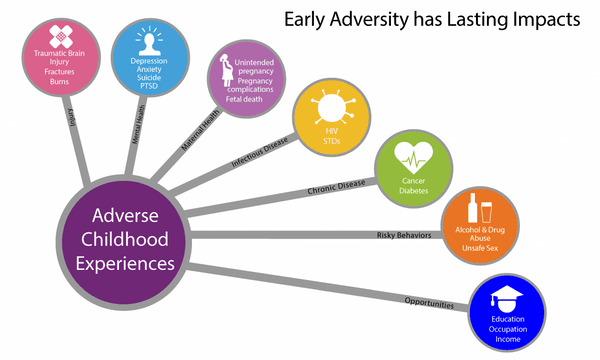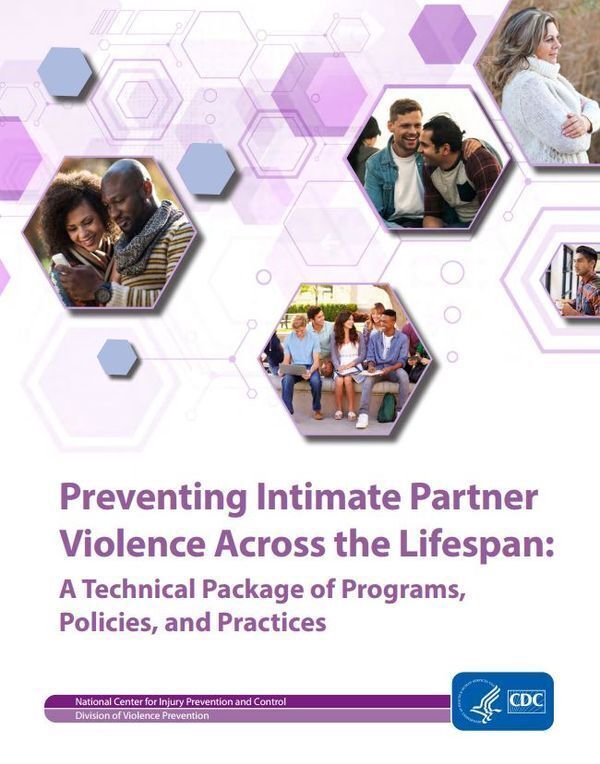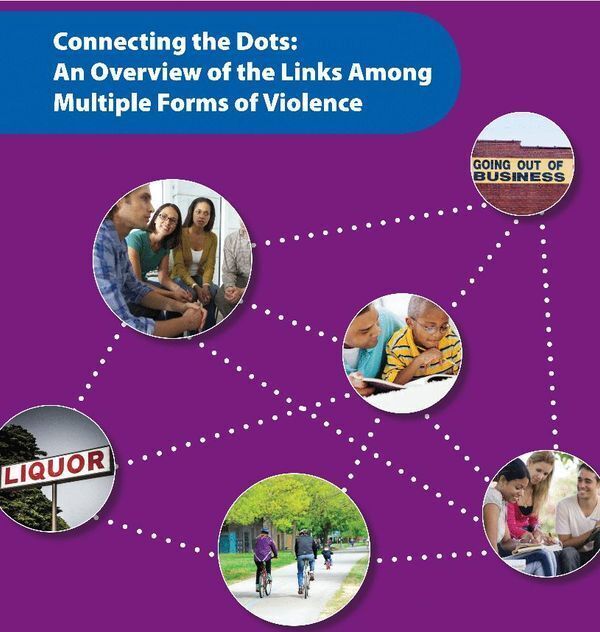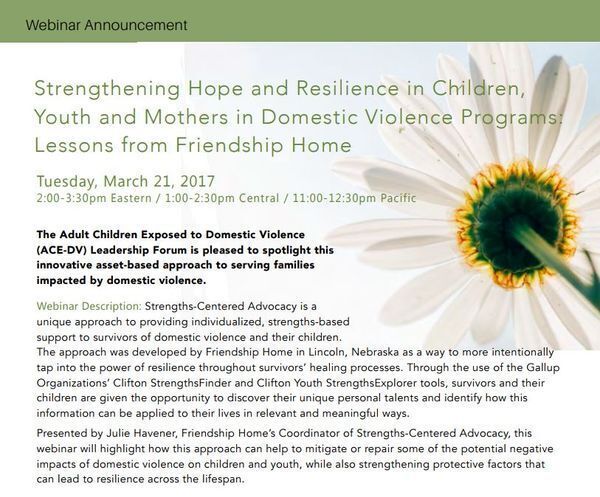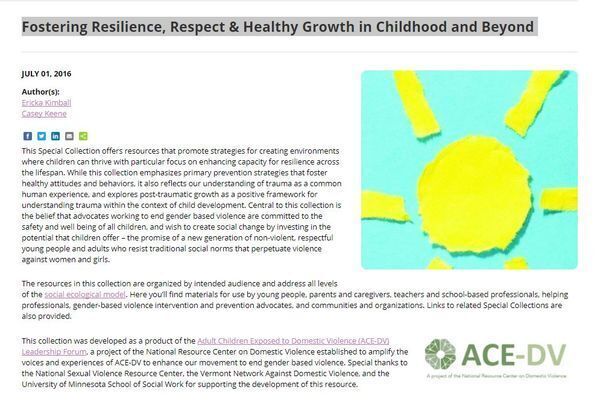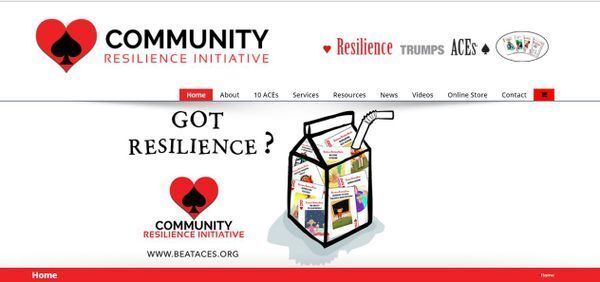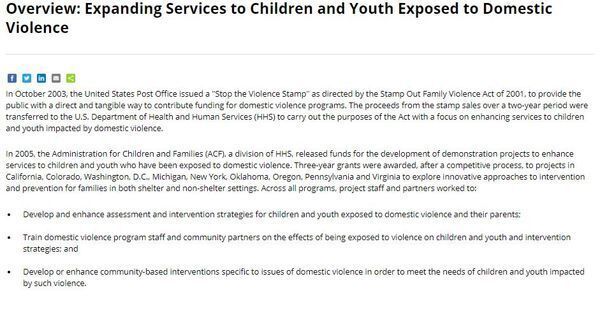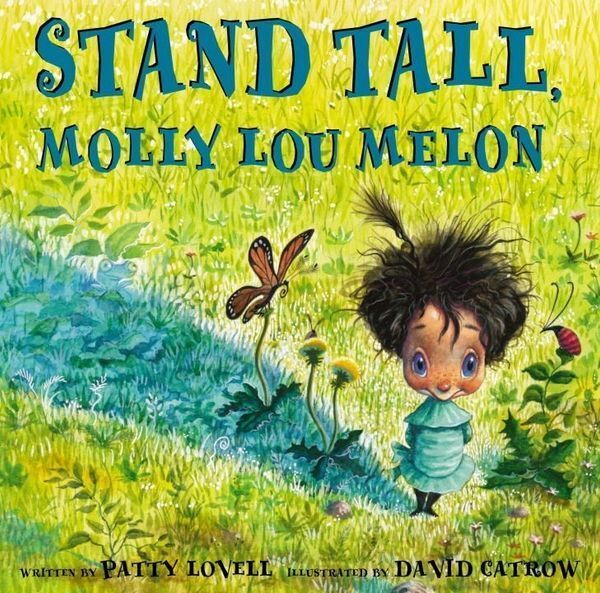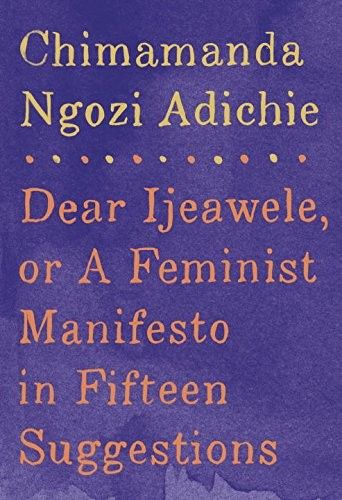-
ACEs can impact kids' health and well-being. They can have long-term effects on adult health and wellness. Their consequences can affect families, communities, and even society. Thankfully, ACEs are preventable. These trainings will help you understand, recognize, and prevent ACEs. Get the insights you need to create healthier, happier childhoods for kids today and bright futures for adults tomorrow.
-
This technical package represents a select group of strategies based on the best available evidence to help communities and states sharpen their focus on prevention activities with the greatest potential to prevent intimate partner violence (IPV) and its consequences across the lifespan. These strategies include teaching safe and healthy relationship skills; engaging influential adults and peers; disrupting the developmental pathways toward IPV; creating protective environments; strengthening economic supports for families; and supporting survivors to increase safety and lessen harms. The strategies represented in this package include those with a focus on preventing IPV, including teen dating violence (TDV), from happening in the first place or to prevent it from continuing, as well as approaches to lessen the immediate and long-term harms of partner violence. Commitment, cooperation, and leadership from numerous sectors, including public health, education, justice, health care, social services, business and labor, and the government can bring about the successful implementation of this package.
-
Connecting the Dots: An Overview of the Links Among Multiple Forms of Violence is a new resource co-developed by CDC’s Division of Violence Prevention and Prevention Institute. This brief shares research on connections between different forms of violence and describes how these connections affect communities. The purpose is to support those working to prevent violence in thinking strategically and creatively about preventing all types of violence from occurring in the first place and coordinating and integrating responses to violence in a way that recognizes these connections and considers the individual in the context of their home environment, neighborhood, and a larger community.
Different types of violence are connected and often share the same root causes. They can all take place under one roof, in the same community or neighborhood, at the same time, or at different stages of life. Understanding the overlapping causes of violence and the things that can protect people and communities can help us better prevent violence in all its forms. -
Strengths-Centered Advocacy is a unique approach to providing individualized, strengths-based support to survivors of domestic violence and their children. The approach was developed by Friendship Home in Lincoln, Nebraska as a way to more intentionally tap into the power of resilience throughout survivors’ healing processes. Through the use of the Gallup Organizations’ Clifton StrengthsFinder and Clifton Youth StrengthsExplorer tools, survivors and their children are given the opportunity to discover their unique personal talents and identify how this information can be applied to their lives in relevant and meaningful ways.
Presented by Julie Havener, Friendship Home’s Coordinator of Strengths-Centered Advocacy, as a part of NRCDV's ACE-DV project, this webinar highlighted the ways in which strengths-centered advocacy can help to mitigate or repair some of the potential negative impacts of domestic violence on children and youth, while also strengthening protective factors that can lead to resilience across the lifespan. -
This Special Collection offers resources that promote strategies for creating environments where children can thrive with a particular focus on enhancing capacity for resilience across the lifespan. While this collection emphasizes primary prevention strategies that foster healthy attitudes and behaviors, it also reflects our understanding of trauma as a common human experience, and explores post-traumatic growth as a positive framework for understanding trauma within the context of child development. Central to this collection is the belief that advocates working to end gender based violence are committed to the safety and well being of all children, and wish to create social change by investing in the potential that children offer – the promise of a new generation of non-violent, respectful young people and adults who resist traditional social norms that perpetuate violence against women and girls.
The resources in this collection are organized by intended audience and address all levels of the social-ecological model. Here you’ll find materials for use by young people, parents and caregivers, teachers and school-based professionals, helping professionals, gender-based violence intervention and prevention advocates, and communities and organizations. Links to related Special Collections are also provided. -
At Community Resilience Initiative website, you'll find vital information for parents, service providers and Walla Walla community members. You can learn about the Adverse Childhood Experiences (ACES for short) research. As parents, you can also learn about how you can help your children to be resilient -- to rise above the challenge of ACEs and to thrive.
-
Children react to exposure to violence in different ways, and many children show remarkable resilience. (Finkelhor, Turner, Ormrod, Hamby, & Kracke, 2009)
This Special Collection provides lessons learned and related resources from nine HHS-funded 3-year demonstration projects to enhance services to children and youth who have been exposed to domestic violence.
Prepared by the National Resource Center on Domestic Violence in collaboration with the Family and Youth Services Bureau, Administration for Children and Families, U.S. Department of Health and Human Services.
-
Be yourself like Molly Lou Melon no matter what a bully may do. Molly Lou Melon is short and clumsy, has buck teeth, and has a voice that sounds like a bullfrog being squeezed by a boa constrictor. She doesn't mind. Her grandmother has always told her to walk proud, smile big, and sing loud, and she takes that advice to heart. But then Molly Lou has to start in a new school. A horrible bully picks on her on the very first day, but Molly Lou Melon knows just what to do about that.
-
A few years ago, Chimamanda Ngozi Adichie received a letter from a dear friend from childhood, asking her how to raise her baby girl as a feminist. Dear Ijeawele is Adichie's letter of response. Here are fifteen invaluable suggestions -- compelling, direct, wryly funny, and perceptive -- for how to empower a daughter to become a strong, independent woman. From encouraging her to choose a helicopter, and not only a doll, as a toy if she so desires; having open conversations with her about clothes, makeup, and sexuality; debunking the myth that women are somehow biologically arranged to be in the kitchen making dinner, and that men can "allow" women to have full careers, Dear Ijeawele goes right to the heart of sexual politics in the twenty-first century. This 80-page manifesto will start a new and urgently needed conversation about what it really means to be a woman today.


